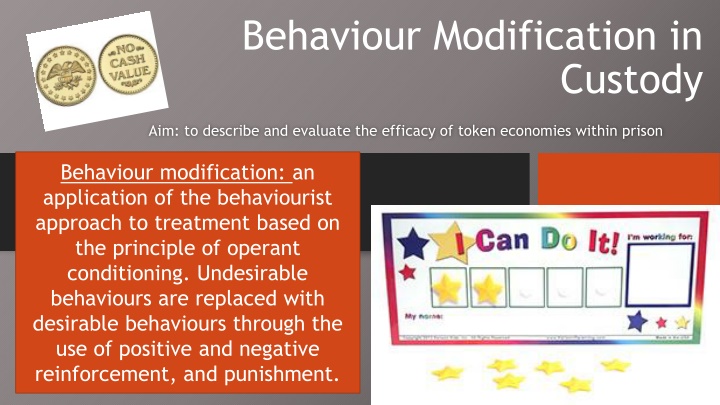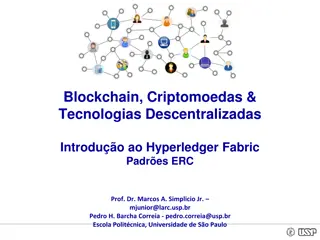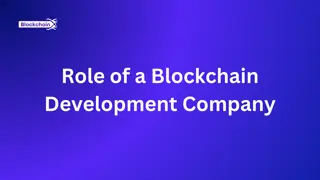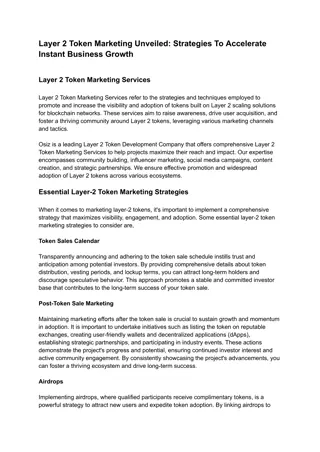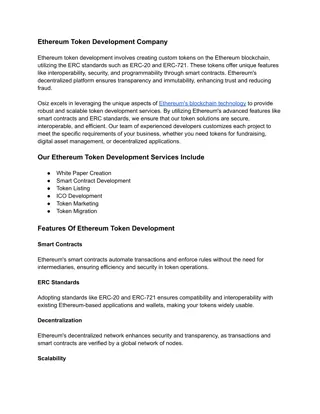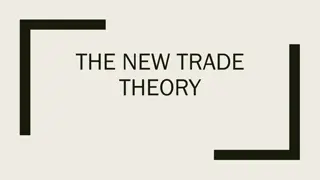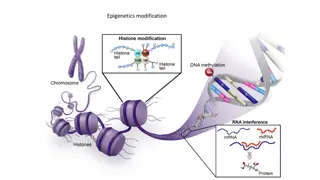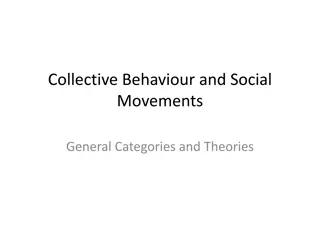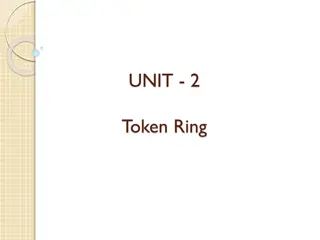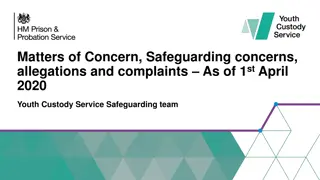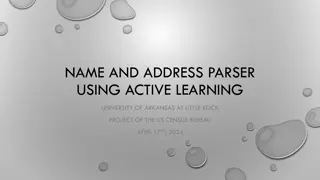Token Economies and Behaviour Modification in Custody: Evaluating Efficacy
This article explores the application of token economies in prisons as a behaviour modification technique based on operant conditioning. Token economies involve exchanging tokens for desired behaviours, aiming to replace undesirable actions with positive reinforcement. The use of increments, consistent reinforcement, and the potential inclusion of conjugal visits as part of the programme are discussed. The effectiveness of token economies in promoting positive behaviour change within the prison system is evaluated.
Download Presentation

Please find below an Image/Link to download the presentation.
The content on the website is provided AS IS for your information and personal use only. It may not be sold, licensed, or shared on other websites without obtaining consent from the author.If you encounter any issues during the download, it is possible that the publisher has removed the file from their server.
You are allowed to download the files provided on this website for personal or commercial use, subject to the condition that they are used lawfully. All files are the property of their respective owners.
The content on the website is provided AS IS for your information and personal use only. It may not be sold, licensed, or shared on other websites without obtaining consent from the author.
E N D
Presentation Transcript
Behaviour Modification in Custody Aim: to describe and evaluate the efficacy of token economies within prison Behaviour modification: an application of the behaviourist approach to treatment based on the principle of operant conditioning. Undesirable behaviours are replaced with desirable behaviours through the use of positive and negative reinforcement, and punishment.
http://images.google.co.uk/images?q=tbn:ZgPIBV1Uxtg2iM:http://www.nationalticket.com/images/Specialty-Products/Tokens.jpghttp://images.google.co.uk/images?q=tbn:ZgPIBV1Uxtg2iM:http://www.nationalticket.com/images/Specialty-Products/Tokens.jpg
Token Economy is based on the idea that POSITIVE REINFORCEMENT LEADS TO CHANGE Tokens are a SECONDARY reinforcers. They are exchanged/cashed in for PRIMARY reinforcers things that are actually wanted. Tokens are given for DESIRABLE behaviours and maybe taken away for UNWANTED behaviours.
Little devils To little angels
Undesirable Think of as many prison rewards that tokens could be exchanged for.
Increments When designing a behaviour modification programme the desirable behaviour is identified - like being polite to other people, and it is then broken down into smaller steps called increments. Smiling, saying hello, keeping voice calm and pleasant, saying please and thank you, not interrupting etc. Each day the prisoner would be rated for politeness and then a decision is made about whether the goal has been met maybe 2 guards have to agree. All staff have to absolutely in agreement about what is being reinforced. To work the TEP must be consistent and fair.
The Conjugal Visit A conjugal visit is a scheduled visit in which an inmate of a prison is permitted to spend several hours or days in private with a visitor, usually their legal spouse. The parties may engage in sexual activity. Legal in 6 states in America Illegal in the UK May reduce sexual and physical violence in prisons (D Alessio 2012)
Could a conjugal visit form part of a behaviour modification programme within prison?
The biggest slave labour workforce in the world? Inmates can earn as little as 10 for a 40-hour working week 237.60 cheaper per week than a worker on minimum wage. The company Speedy Hire closed 37 depots, slashing 300 jobs, while at the same time employing 200 prisoners to service their plant hire tools. And in August 2012 the Guardian reported that a call centre in South Wales was using inmates from an open prison 21 miles away and paying them 3 a day. Is this a positive or negative use of the token economy system?
One strength of behaviour modification is that it is easy to implement It does not require specialists and is cheap to administer and there is evidence to suggest it is effective . Hobbs and Holt (1976) describe a token economy system which was introduced across 3 young offenders behavioural units, a 4th institution for young offenders acted as a control condition. The token economy groups showed a significant difference in the amount of positive behaviour. However, Bassett and Blanchard (1977) suggest the benefits of the token economy system are lost when staff apply the rules inconsistently due to lack of training or high staff turnover. Furthermore, offenders are not given the option over whether they participate in the token economy. Withdrawal of privileges such as exercise or phone calls to loved ones may also be ethically questionable. Also, in order to be effective, important reinforcements need to be controlled, which may violate basic human rights e.g. restrictions on food, privacy and freedom of movement. This questions the morality of using a token economy system.
Another limitation is that there may be limited rehabilitation value For example, Cohen and Filipczak (1971) found that token economy groups showed more desirable behaviour than control groups. However, after 3 years, rates of recidivism went back to reflecting national statistics. This finding suggests that . . . The benefits of behaviour modification may not generalise beyond a prison setting . . .
Blackburn (1993) Token economies, according to Blackburn, have little rehabilitative value any positive changes may quickly be lost when offenders are released. Progress is unlikely to be assured upon release since law-abiding behaviour is not rewarded or reinforced on the outside. In fact, rewards the offender receives from breaking the law (such as group status) may be more powerful BM is not a cure and people may become dependant on the regime.
Although BM has its limitations it can be improved Field (2004) found that when the BM programme is tailored to the individual it is even more effective, he suggested that the rewards and frequency of the rewards must be tailored to the individual offender. Field found that in a youth offender setting, prisoners responded more positively when rewards were more immediate and more frequent. Why might individually tailored programmes be more difficult to implement in a typical prison.
Strength or Limitation? Think about the research evidence. Overall do you think Behaviour Modification programmes are a good idea or not? Your own opinion will affect the tone of your essay you will be making a judgement and that will become evident in the way you use the evidence. This is how you create an argument
Evaluating TEP Weaknesses Limited rehabilitative value Strengths Relatively easy to implement Raises ethical issues Individually tailored programmes can be effective Learning is only superficial Now complete your work sheet from PHG
Exam Practice! A young offender s institute introduced a token economy system for 6 weeks. Each young offender was given a behaviour rating out of 50 based on a questionnaire completed by prison staff. The questionnaire included several measures of the offender s behaviour in prison including level of compliance and relationship with other offenders. At the end of the programme, the offenders were rated using the same questionnaire. Each offender was matched with another offender of the same age and criminal history in a neighbouring institution; the same measures were taken but a token economy programme was not used in this institution. 1. Write a suitable hypothesis for this investigation 2. Which experimental design was used? 3. Explain why this experimental design was flawed. 4. Which statistical test would be most appropriate? Justify your choice with reference to levels of measurement (e.g. ordinal, nominal, interval)
Prison Labour Documentary https://www.youtube.com/watch?v=rqXAkE-54NU Worth a watch really interesting
You are now a prison guard: Desirable behaviours? Undesirable behaviours? What are the rewards? What are the punishments?
